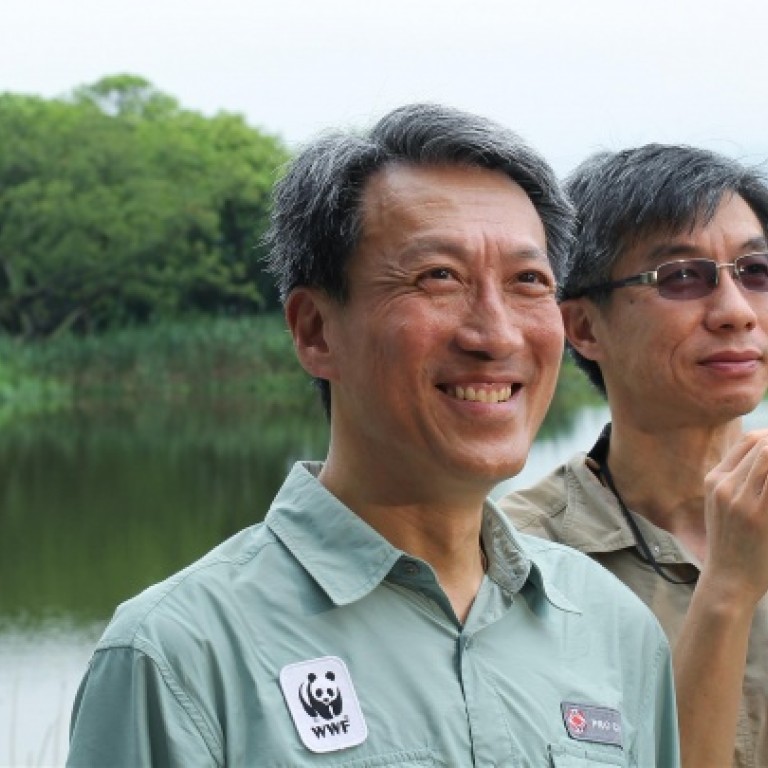
WWF ends development partnership with Cheung Kong
Conservation group also says policy change made partnership unworkable as it ends two decades of ties with Cheung Kong
A disagreement with a property developer over the speed of a wetland housing plan was what drove WWF, the city's biggest environmental group, to pull out last week from the controversial project, the group's chief says.
Adam Koo Tze-cheung, chief executive of WWF Hong Kong, said it had flagged its intention to withdraw as a partner and adviser to Cheung Kong's controversial Fung Lok Wai wetland housing and reserve project about a month ago.
It had failed to convince Cheung Kong to immediately withdraw the project's application that the company had filed with the Town Planning Board, pending further efforts to develop a model for a wetland reserve trust.
A trust is seen as vital for delivering long-term conservation for most of Hong Kong's wetlands, but a government policy change two years ago prevents a trust from functioning in the way WWF had wanted.
Michael Lau Wai-neng, WWF's senior programme head, said a government policy change in 2011 rendered the group's original deal with Cheung Kong unworkable. The modified policy required developers participating in nature reserve partnerships to put their money into the Environment Conservation Fund, from which all management initiatives would require funding approval.
The land ownership of the reserve would continue to remain with the developer instead of transferring to the trust over the long term.
Lau said that meant less flexibility for long-term planning and management of the reserve.
The WWF-Cheung Kong partnership dates back two decades, but became official when the developer pursued a project under a new conservation policy in 2004 that permitted construction on less sensitive parts of nature reserves.
Under the deal, Cheung Kong had promised to contribute seed money to create a trust that would generate income to run a wetland reserve built on 95 per cent of the 80-hectare site.
But the arrangement has increasingly become a political burden on WWF amid rising public hostility towards property developers in recent years. Last year, some activists even urged members of the public not to donate to WWF.
Yet Koo told the that WWF's decision to terminate the partnership was without any pressure.
"We just did what we believed was right. The environment is always the only [factor] affecting our decisions, and we are free from pressure from any [individuals] or any groups," Koo said.
Koo said WWF believed its conservation goals could not have been served if the controversy over the project dragged on in its present form.
"It is not always necessary to do things in the way we did in the past. If it is irrational or not making sense, we are ready not to do it," he said.
However, Koo said WWF's withdrawal did not mean the group had abandoned its approach of engaging businesses in conservation issues.
He also would not rule out the possibility of working with Cheung Kong again in the future.
"The door is not yet closed if there is room to co-operate to meet our conservation goals," Koo said.
